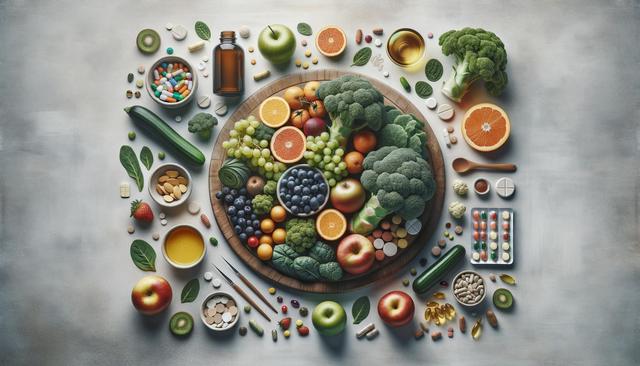Understanding the Role of Vitamins in Hair Health
Hair health is often a reflection of overall wellness, and vitamins play a vital part in supporting the growth, strength, and appearance of hair. Deficiencies in key nutrients can lead to hair thinning, breakage, or even excessive shedding. Incorporating the right vitamins for hair growth into your daily routine can make a noticeable difference over time. These vitamins support follicle function, scalp circulation, and the production of keratin, the protein that makes up the bulk of each hair strand.
Among the top hair growth nutrients, some of the most commonly recommended include:
- Biotin – essential for keratin production and overall hair structure.
- Vitamin A – helps skin glands produce sebum, which moisturizes the scalp.
- Vitamin C – aids in collagen production and helps absorb iron.
- Vitamin D – may help create new hair follicles.
- Vitamin E – supports a healthy scalp and may prevent oxidative stress.
When considering hair loss vitamins for women, it’s important to look for balanced formulas that include these nutrients in safe, effective dosages.
Biotin and Its Impact on Hair Growth
Biotin, also known as vitamin B7, is one of the most discussed nutrients when it comes to hair health. It plays a central role in the production of keratin and supports the structure of skin, nails, and hair. People experiencing thinning hair often turn to biotin for hair health because of its association with stronger strands and improved hair texture. Though biotin deficiencies are rare, supplementation can be beneficial for those with low levels due to diet or certain medical conditions.
When choosing the best supplements for thicker hair, biotin is frequently included alongside other B-complex vitamins such as B12 and folate. These nutrients work together to support healthy blood flow to the scalp and nourish hair follicles from within. While results vary by individual, many report reduced shedding and stronger growth over several months of consistent use.
It’s worth noting that while biotin is a popular choice, it works best as part of a broader nutritional plan. Combining it with a well-rounded diet and other top hair growth nutrients may yield better outcomes than using biotin alone.
Natural Remedies and Nutritional Approaches
Many people seek out natural remedies for hair loss to avoid harsh chemicals or expensive treatments. Nutritional strategies can be an effective and gentle approach. Knowing how to stop hair thinning naturally involves identifying potential deficiencies and addressing them through food and supplements. Iron, zinc, and omega-3 fatty acids are all important for maintaining hair density and shine.
Some natural food sources rich in hair-supporting nutrients include:
- Spinach and kale – rich in iron and vitamin C
- Eggs – contain biotin and protein
- Fatty fish – provide omega-3s and vitamin D
- Sweet potatoes – high in beta-carotene (which converts to vitamin A)
Incorporating these foods regularly can contribute to healthier hair over time. For those with dietary restrictions, supplements may help fill in the gaps and support the body’s natural hair growth cycle.
Choosing the Right Supplements
When evaluating the best supplements for thicker hair, look for products that include a combination of nutrients known to support hair growth. Multivitamins specially formulated for hair often include a blend of biotin, vitamin E, zinc, and other essential elements. It’s also wise to consider your individual needs. For example, hair loss vitamins for women may include added iron or folate to address gender-specific nutritional requirements.
It’s important to choose supplements that are clearly labeled, third-party tested, and free from unnecessary fillers or artificial additives. Here are a few tips for selecting a quality supplement:
- Check for clinical backing or research supporting the formula.
- Look for transparency in ingredient sourcing and manufacturing.
- Consult with a healthcare provider if you have underlying health concerns.
Consistency is key—most supplements take at least 8 to 12 weeks to show visible results. Combining supplementation with a nutrient-rich diet and healthy hair care practices can maximize benefits.
Additional Lifestyle Tips for Hair Maintenance
Aside from vitamins and supplements, lifestyle habits can also influence hair health. Stress, sleep quality, and how you treat your hair daily all affect its growth and appearance. Even the most effective vitamins for hair growth need the support of a healthy routine to work optimally. For instance, chronic stress can throw off hormone levels, leading to temporary hair loss.
Here are some supportive habits to consider:
- Practice mindfulness or relaxation techniques to reduce stress.
- Get regular sleep and stay hydrated.
- Avoid excessive heat styling and harsh chemical treatments.
- Use gentle, nourishing hair care products.
Understanding how to stop hair thinning naturally means taking a holistic approach—addressing nutrition, lifestyle factors, and proper hair care. When combined, these practices can contribute to fuller, healthier hair over time.




Leave a Reply